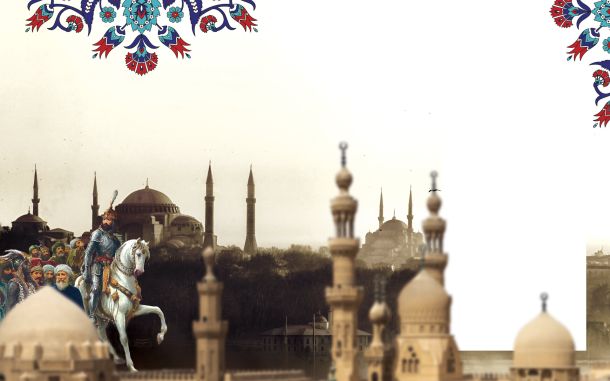Moral of the Parable

In This Article
-
Without hands against those who strike, without a tongue against those who curse, and without a bitter heart against those who feel bitter against us.
-
A person is responsible for protecting their faith, life, honor, and property. Lawful defense is not a sin or crime.
-
Choosing the way of mildness and not responding to evils with evil are very important in terms of establishing peace in society.
Question: What are the messages given to believers in the parable of Cain and Abel?
In relation to this and other stories in the Qur’an, it is important to know that they are not in the holy scripture just for the sake of conveying historical knowledge. The Qur’an is teaching us certain truths by means of them. What falls to us is to find their aspects that relate to our time and draw lessons from them.
A superficial consideration will not be so helpful to disclose the truths behind these verses. It requires reading them time and again, in their integrity and with serious thought. “It must definitely be telling something to me here” should be our approach to every verse, as if it were a direct address to us. And so should we approach the parable of the two sons of Prophet Adam.
As is known, there was a disagreement between Cain and Abel. Cain did not consent to what God decreed for him. Upon this, in order to test who was right and who was wrong, they referred to a practice special to the people of that era. Accordingly, a fire that descended from the sky would destroy the sacrifice of the righteous one and not touch the sacrifice of the other. This way it would be clear who was right and who was wrong. Thus they offered a sacrifice each and a fire that descended from the sky took the sacrifice of Abel. Cain was so much blinded by greed and envy that he could not admit the result although his being wrong was affirmed by God Almighty Himself. Then he committed the sin of murdering his brother, as related in the Qur’an. Afterwards he buried the body in the ground, following the example of a crow he saw digging up the earth.
Now imagine a person who was brought up in the household of a Prophet. Yet, he is not consenting to God’s decree about him, then committing a willful murder, and then hiding the proof of what he did. His discontent with God and murder of his brother were so gross as crimes that they made him enter a dark realm step by step; he may even have fallen to unbelief after a certain point, for the Qur’an says that he became a loser forever.
“Narrate to them (O Messenger) in truth the exemplary experience of the two sons of Adam…” (Maeda 5:27-31). The Qur’an and authenticated sayings of the Messenger do not mention their names. These names are taken from the Old Testament. No matter what their names were, both of them were brought up under the guidance of a Prophet, in a home where revelation was showering over them. Therefore, Cain was most probably a believer like Abel, but he obeyed Satan and killed his brother. Cain was the first one among children of Adam to commit murder, and thus he is the one who blazed this evil trail for the first time. In this regard his sin is a manifold one and this sin may have led him to unbelief; with the approach of Said Nursi, every sin is a path leading to unbelief. At the same time, every step taken toward sin is a step taken toward unbelief.
The sin that caused Cain to lose is jealousy and intolerance. It is his jealousy of what God granted to his brother and not accepting the Divine decree. As the Qur’an clearly points out in different verses, God created everyone differently. He bestowed different blessings to everyone, endowed everybody with different talents and abilities, and rendered some better than others. The Qur’an states that even some of the Prophets were exalted above some others (Isra 17:55). Even if a person is better than others in one thing, that person can be behind others in another thing. For certain wisdoms we do not know of, God Almighty may have given more to some, endowed them with knowledge and wisdom, and expanded their horizons. By utilizing these favors of God properly, they may have realized even further progress. Each of these is an element of trial. The trial and responsibility of one who received more blessings in a certain respect is greater. On fulfilling what that responsibility calls for, that person will have passed the trial.
The other person’s responsibility is to the degree of the blessing they received. The duty that falls to a believer is to meet all of these decrees of God Almighty with respect, consenting to what is in hand, and fulfilling the due responsibility for what fell to their own share. However, many people cannot easily stomach others who are better than themselves. Because of their jealousy, such people kill their own hearts, consume their own good deeds, and come under the burden of sins, without even being aware of it. If one does not try to extinguish the fire of their intolerance and envy and not curb those feelings, then the person puts them into action and starts committing sins.
Abel’s stance
Another point that catches attention in the parable mentioned is the attitude taken by Abel in response to Cain’s attempt for murder. The Qur’an relates this attitude as follows: ““Yet if you stretch out your hand against me to kill me, I will not stretch out my hand against you to kill you. Surely I fear God, the Lord of the worlds…” These words of Abel are counseling us to avoid tit-for-tat, namely not to respond to aggression with aggression.
This does not necessarily mean we should not use our right of legal defense when appropriate. On the contrary, a person is responsible for protecting their faith, life, honor, and property. Lawful defense is not a sin or crime. If a person dies while trying to defend these essential values, he or she is regarded as a martyr.
Be that as it may, it is also important to respond with tolerance as much as possible, of course without failing to protect what we should. “Without hands against those who strike, without a tongue against those who curse, and without a bitter heart against those who feel bitter against us”; responding in this manner is so essential to improve personal relationships and to establish peace in our local communities and around the world. Even if some show their teeth growling at us, we should still respond saying, “God did not give us teeth to bite others and claws to attack them.” We still prefer to behave mildly towards everybody, particularly so towards our fellow community of believers, as an indication of magnanimity; this must be our unchanging character.
In our time, even trivial matters are made into a fuss with political considerations or other plans. To obtain esteem and status, they greatly exaggerate petty issues as if they were crucial, and raise big fights around these. For this reason, choosing the way of mildness and not responding to evils with evil are very important in terms of establishing peace in society. If only politicians too could learn certain things from this lesson of the Qur’an and revise their style accordingly once more! If only they would check with their ways and methods with regard to the Qur’anic virtues and could moderate certain attitude and behaviors of theirs. If only they did not act in such a reactionary way, not add fire to flames of disagreement, and not destroy bridges of peace.
Balance in love and anger
The Messenger of God counsels a person to have moderation at loving someone and to have moderation at being angry with someone, because the person we love might become an enemy one day and the person we are angry with might become a friend one day (see Tirmidhi, Birr 60). So when such a day comes, you might feel very serious remorse for what you did in the past. Therefore, one should not go to excess neither in love not in anger.
If you praise somebody to the skies, they will fall to the ground and shatter when you stop. In the same way, when you are enraged with someone, you should know to curb your rage, for your paths might cross later in very different terms. We should not act solely by looking at the present day, as if there were no tomorrow. Who knows, maybe tomorrow we will come side by side with people with whom we are at loggerheads today, and at a critical moment we may need to struggle against a common adversary together.
This was the very conduct followed by Abel, brought to our attention as a paragon of virtue. If only people who influenced others with their ideas and writings acted more sensibly by taking into consideration the tomorrow of the path they are walking.








